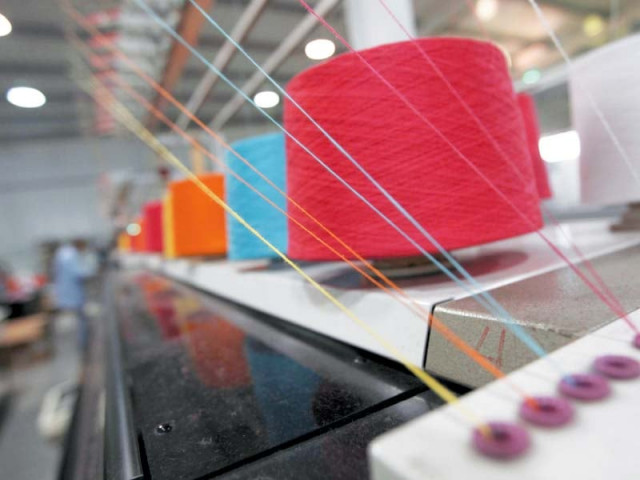Grim year for textile exports
Industry continued to face handicap of being 10% more expensive against international competitors, says APTMA chief

Grim year for textile exports
The industry has been rendered unviable by the high cost of doing business as a consequence of which textile exports fell further by $600 million, said the official.
Total exports are understood to have fallen by $1.2 billion in the current year as per the present trend.
Foreign exchange receipts on trade account are important to be revived and given a new impetus to arrest the country’s trade deficit that has swelled to an alarming and unmanageable level of $28.3 billion, added Fayyaz. “This gap cannot be bridged until export-led growth policy initiatives are undertaken,” said Fayyaz.
He said the textile industry continued to face the handicap of being 10% more expensive against international competitors owing to unrealistically high energy costs. “Since 2013, the price of energy has been higher than that of competing countries by 4 cents per kilowatt hour,” he added.
According to Fayyaz due to unrealistically high energy prices in the province - where 70% of the country’s textile industry is located - the Punjab-based textile industry was exposed to a severe disparity in energy prices.
“Resultantly, a bulk of the textile manufacturing capacity lies underutilised and over 70 textile mills have shut down in the last six months.”
The two basic raw materials of textile industry, cotton and man-made fibres - to which the textile industry adds value for export - have to be imported as their domestic availability falls far short of the industry’s requirement.
“The completely oblivious approach of the government to this scenario and its subjection of raw materials to increased import duty besides other levies such as sales tax and withholding tax is indeed regrettable and denies the textile industry raw material availability at competitive and viable prices.”
Besides, he added, the presumptive and innovative tax regime in the country is an additional burden on the organised segment of the textile industry, said Fayyaz.
Aptma chairman concluded that time has come that the government should revisit its policies towards the textile industry and should take concrete steps in reviving the ailing sector in 2017.
Published in The Express Tribune, January 1st, 2017.
Like Business on Facebook, follow @TribuneBiz on Twitter to stay informed and join in the conversation.



















COMMENTS
Comments are moderated and generally will be posted if they are on-topic and not abusive.
For more information, please see our Comments FAQ